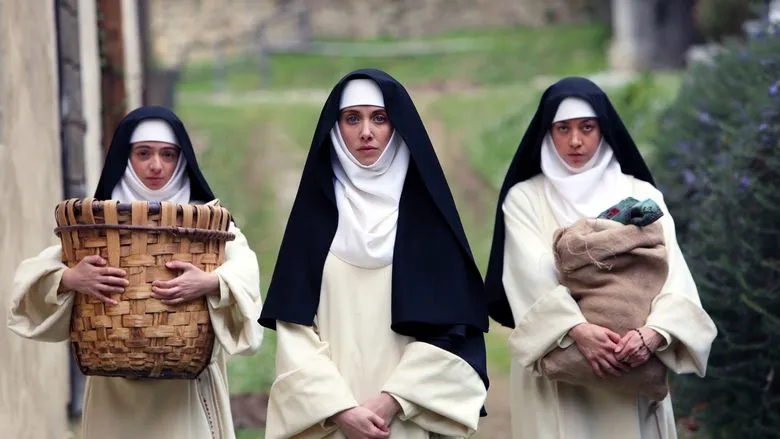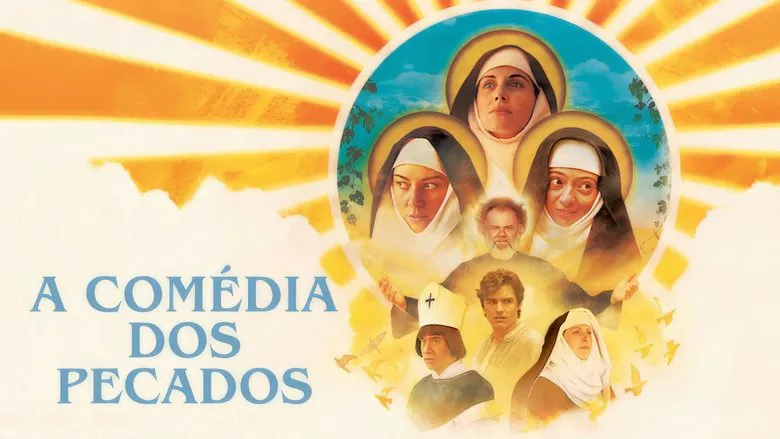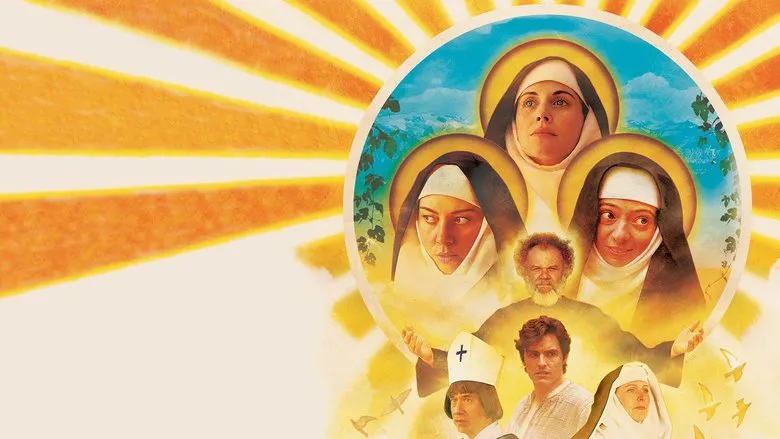Overlooked Gems: “The Little Hours” - A Medieval Comedy That Skirts the Edges of Sin
In our weekly “Missed at the Box Office” column, we highlight films that, while not gracing Russian cinema screens, might just be worth your time.
Imagine medieval Italy: Massetto (Dave Franco), a charming servant, finds himself in a compromising situation with his master’s wife. When the affair is discovered, Massetto flees and stumbles upon Father Tommasso (John C. Reilly) from a convent. The priest offers him a job, as their gardener has just left. To prevent the nuns from being tempted by the handsome young man, Father Tommasso instructs Massetto to pretend to be deaf and mute. However, this only fuels the nuns’ curiosity and desires. After all, if the servant can’t speak, he can’t tell on them, right?

The English title, “The Little Hours,” is a playful pun, sounding suspiciously like “Little Whores” if mispronounced.
From “Zombie Girl” to Medieval Mischief: The Inspiration Behind the Film
What could possibly lead a group of well-known American comedians to star in a film about a medieval convent? It’s easy to see that writer-director Jeff Baena, known for comedies like “Life After Beth” and “Joshy,” drew inspiration from Giovanni Boccaccio’s “The Decameron.” Baena crafted the screenplay based on the first and second stories from the third day of “The Decameron,” and the opportunity to portray these classic characters from nearly a millennium ago attracted a stellar cast of comedic talent, including Franco, Reilly, Alison Brie, Aubrey Plaza, Kate Micucci, Molly Shannon, Fred Armisen, Nick Offerman, Adam Pally, and Paul Reiser. It’s an impressive ensemble for a low-budget film!

Laughs and Longing: A Review of “The Little Hours”
As you begin watching “The Little Hours,” you eagerly anticipate the comedic brilliance of Brie, Plaza, Micucci, and the others in their roles as nuns and priests. Unfortunately, Baena’s film is more amusing than uproarious. The film is filled with absurdities – from the characters speaking in modern vernacular and using contemporary swear words – but it lacks genuine wit. It’s an erotic farce in spirit, but by genre standards, it lacks sufficient nudity and absurd madness. Overall, the film feels more Americanly ironic than Italianly raucous. However, the events that unfold during the film’s climax largely compensate for the restraint of the preceding scenes.

Kate Micucci: The Unexpected Star
Kate Micucci is a prolific voice actress, currently lending her voice to Ponka in the “DuckTales” reboot.
Somewhat unexpectedly, yet also predictably, Kate Micucci emerges as the film’s standout performer. This character actress with a memorable voice typically plays supporting roles, and she seizes her chance to shine in a leading role. Her character is naive, dim-witted, and prone to tattling, but she goes further than anyone else when sinful acts begin to occur in the convent (not just those involving the “deaf-mute” hunk in the barn). John C. Reilly also makes a memorable impression, not with flashy moments, but with his masterful creation of excellent scenes from seemingly nothing. In contrast, Plaza’s performance feels too monotonous, even for a star known for her comedic deadpan delivery. Brie’s role lacks comedic punch, and Dave Franco is merely present to look good and smile charmingly. While this suffices for the film’s artistic goals, one wishes that everyone, not just a select few, contributed to the farce’s humor.
A Lighthearted Escape: The Essence of “The Little Hours”
Does “The Little Hours” possess any deeper meaning? No, it’s simply a group of actors goofing around, capable of eliciting laughter but offering nothing to the mind or heart. Except, perhaps, sympathy for the medieval nuns who often lived in convents against their will. However, the film encourages us not to lament the characters’ fates but to laugh at their attempts to find pleasure in life. Therefore, it’s not a social commentary but simply an amusing film for those who enjoy playful stories.